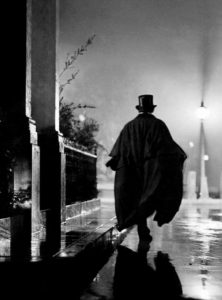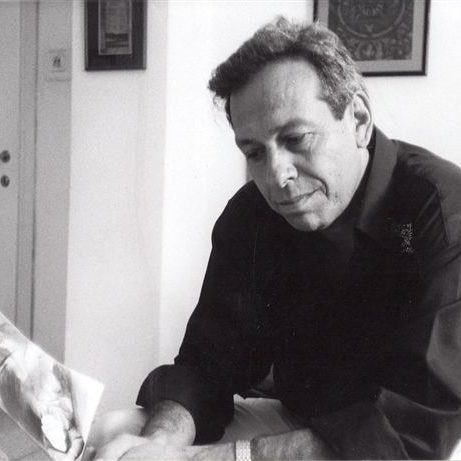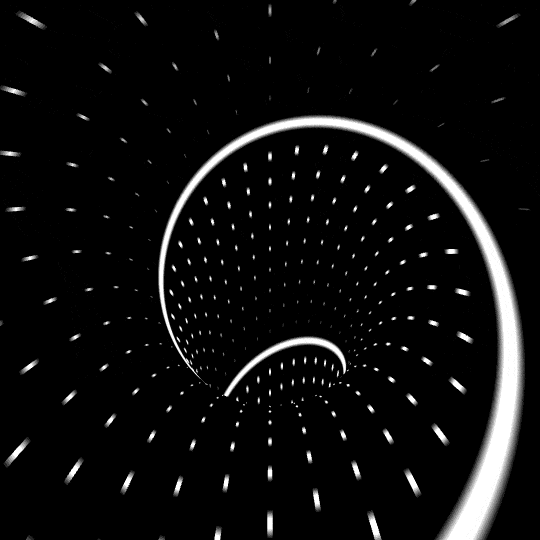There is no doubt that a lack of connection to the shadow can bring among another bad phenomenon unrealistic feelings to a person about himself, mental and spiritual inflation-Guru pretensions, that is typical of people who "jump" on the great success, great wealth, a certain talent, a certain charm or extraordinary beauty or detached spiritualism.
Lack of awareness of the shadow can contribute to arrogance and hubris. Man forgets his dimensions, and his shadow will take him over. The sexual, forceful shadow compensates from different past periods, the beggar on horseback that is suddenly becoming a king, and more. In such cases, the swelling through the shadow can lead to evil, gaining momentum, and the swelling would cause the person to lose it. Only with the help of knowing the shadow, in this case, is there a resurrection to return to the wholeness of the imperfection.
Taking it in its deepest sense, the shadow is the invisible saurian tail that man still drug behind him. carefully amputated, it becomes the healing serpent of the mysteries
Jung "the integration of the personality." 1940
The topics of the article
differences between Evil and Shadow
Archetypal and personal shadow
The shadow as a corridor to the archetypal Evil
shadow as a necessary tool for reducing hubris
Integration of shadow as part of the individuation process
"It is a frightening thought that man also has a shadow-side to him not just a little weakness and foibles but positively demonic dynamism. The individual seldom knows anything of this: to him, as an individual, it is incredible that he in any circumstances go beyond himself. But let this harmless creature form a mass, and there emerges a raging monster. Each individual is just a tiny cell in a monster's body so that for better or worse, he must accompany it on its bloody rampage and even assist it to be utmost Having a dark suspicion of these grim possibilities; a man turns a blind eye to the shadow side of human nature."
Jung, On the psych of u.c. 1943
About the shadow and evil and the possibility of living with it
We are all aware that evil exists in the world, and we are all preoccupied with it. Some deny it, some wait for it all the time, and some arouse its existence repeatedly. But the fact that we can be a part of it is hard for any of us to grasp
We know the chain of evil in the Jewish creation of the world where there is no evil in everything God creates (except the serpent). He creates man in his image and likeness, but as soon as he is expelled from Eden, from the absolute authority of the divine gardener, evil appears! It appears as part of the character of Cain, who murders his brother out of abysmal jealousy and henceforth has to deal with his shadow. Cain as the first man symbolizes for us the destiny of man in bearing his shadow. A shadow that is like a sin lies at its opening, and man must learn to rule over it. The motive of jealousy, the jealousy of the brethren, is the one that leads according to Judaism to primary evil.

.
We know the birth of evil in the mythological Greeks' creation of the world, where it already begins, in the relationship of the first parent's: Mother Earth Gaia and Father-son Heaven Uranus, and in their relationship, and the inability of Uranus to accept all of their children equally. From there, a huge conflict is created. This quarrel causes great mother Gaia to take revenge and create bad pairings with Tartarus (the world below), and that gave birth to evil, to create a lineage of monsters between which man is forced to live. From there on, with those monsters, man will have to fight to maintain good, to sustain reasonably, and to reach a higher sole. (in the bible, it has to do with work!)
Greek mythology says that even after the creation of man by the gods to worship them, the gods were afraid that the enlightened man would forget that he is only human and will get hubris (Not being ashamed in front of the Gods). Therefore, they sent him Pandora's box, which was filled with weaknesses, bad habits, diseases, and death, bundles of trouble, and contained the Archetype of Hope to help men overcome their despair.
Even in psychology, which is relatively new, there is a clear recognition that the human psyche contains these opposites of good and evil: death drives (Thanatos) and life instinct (Eros), good and evil, destruction and construction. Then, later in life, with the development of personality, built in the form of the personal persona and hidden shadow. Shadow and light. Those parts are based on the archetypal polar dimensions on the one side of evil, of which we have the symbols of the devil, the demons, and the monsters, and on the other side, the goodness of which has the symbols angel. Those symbols
According to -Jung, they are parts of the human psyche and its development through cultural history.
The idea that there is the need for man to deal with his shadow and evil, develop Humanity, awareness, reason, individuality, and strive to complete the wholeness of his psyche will be a candle to our feet.
We will begin with a distinction that is not always clear what the differences are between the personal shadow and the part of the evil that is Archetypal and still is in our psyche.
In the personal shadow, we mean the unconscious unwanted repressed parts of man, which is an integral part of him and follows him like his own shadow. We will refer to these personal dark shady parts only in an adult developmental state of the psyche, where there is already a "daylight, "that is when there is already consciousness. Because at night there is no shadow.
Being in the archetypal, when super-personal parts are activated, we mean a psychic situation that takes the person out of himself, out of the personal place, when he loses control, swallowed up by unintegrated demonic forces. Those states are many times A psychic situation which is very difficult for therapy.
In mythology, too, we have a distinction between monsters that were once human (Medusa, for instance). They then have a personal story related to punishment by the gods or being encountering God's quarrel, story suffering, wound, or pain, and between those eternal monsters that symbolize absolute Evil as its own. With those absolute evil monsters that don't have any human spark or soul, the hero has nothing to do and should be avoided. Like the hero, the therapist too should avoid the kind of Evil that he cannot find behind any human background to empathize with
We will leave now for our discussion of the general evil, the superhuman, and the untreatable, and discuss the personal shadow, that part of the psyche which still contains a spark of humanity, a part that despite its blackness can arouse empathy and compassion, a part which is a significant and important point for understanding the compound soul.
The shadow consciousness is important for the psyche's wholeness and the reason to avoid the shadow to be the corridor that can lead the person to the great archetypal Evil.
The unconscious shadow is the point that can bring a person down to the archetypal super personal place, which exists as a possibility in the depths of the psyche. The reaction operates mainly when a man is swept away by the collective, the herd, into the archetypal realm.
A person who is unaware of his own shadow, namely the weaknesses, anxieties, the undeveloped primitive sides of himself, the unresolved autonomic complexes, and the cultural complexes he sometimes lives reluctantly, put him in danger of being caught by Evil.
Such a person is also incomplete, not whole, but partial or split off, one-sided, living in his own shadow, under his own shadow, or in the Qazi pure "spiritual air" when detached from himself.

Recognition and connection to the shadow are essential for self-completion for being more authentic and getting a meaningful life, a designation, and getting stronger preservation and being more Human.
When the individuation process begins, it is not anymore about repressing the shadow as in the old ethics of the cultural history or personal life childhood years! Although repression was part of strengthening the ego (at childhood) and essential in history as long as the ego-consciousness was too weak or in the process of its initial construction. And then, when it is about the time of acknowledging the self and its existence and acknowledging the need to know the self and accept it as the whole part of us, knowing the shadow becomes important!
This knowledge is essential in such a collective society, so sweeping the individual, society that does not encourage individual development, as our society in Israel. A society that is too public and preaches for the common good for all.
The shadow is what blows in our necks, says Jung, the part that makes us troubles most of the time. It can be related to our passionate drive's world, sex, or aggression or other drives or traits and inclinations that we have to "get along" with it, or learn to suppress them or sublimate them urgently certain period or another.
It can also be related to our traits that are considered by us negative: like jealousy, greed, arrogance, piety, or racism. Finally, it can contain our unresolved issues like narcissistic ones, inferiority, feelings of discrimination, repressed social rejection, and more.
But also, traits that were unacceptable in the family or environment in which we grew up, even if they are not negative in themselves, such as vulnerability, gentleness, innocence, sensitivity, softness, and the like. A shadow that can be called a white shadow
The personal shadow can also consist of some partial shadow of the parents, the unconscious parts and complexes being transmitted and thrown at the environment, or the children themselves. In general, both the unconscious and the unfulfilled parts of the parents can become more quickly the portion of their children.
For example, a father who has not lived up to his achievements or has not been provided professionally can pass on to his child insane achievements that are in his shadow. Or mother, if not living her childhood or sexuality, can subconsciously convey to her children the sexual shadow in a way that will take over their lives. Or a person who has not realized adolescence can cultivate such a shadow in his children so that they do not mature and remain eternal youth. or existential fear as part of parent's shadow transmitted and so on…
But the shadow can also be made up of our cultural complexes. Where supremacy, righteousness, inferiority, or piety become part of his culture dominate and man is unaware of the shadow -unacceptable personal traits that bear for it.
As stated, we want to know the shadow both for the sake of the internal vaccine and for the social vaccine and the sake of the inner wholeness and true awareness of yourself. To know what "real materials" you are made of.
The shadow tends to be discarded: "The one who rejects himself he rejects mainly it," such expressions as: "take the log out of yourself before you point up the speck of mine " and more show us that our ancestors were also aware that we tend to see in others everything we cannot or do not want to see in ourselves – and those become our projections.
In children, it is very conspicuous, blaming and seeing everything in another. But even adults tend to project, especially in group behavior and the phenomenon of scapegoating and in general. In the idea of the goat sent to hell that appears at Yom Kippur's fasting, the issue of projection can be seen in its most primitive way and the function of the scapegoating towards others.
The hairy goat thrown from the cliff carries everyone the sins and evil from which they are disposed of is a very ancient idea and a ritual.
Some people are less projective, but the shadow takes them over, and they live under their own shadow or are caught in their own shadow.
Caught in envy, greed, insane competitiveness, power, in extreme anxiety for its various forms or under inferiority, marginalization, sacrifice, terrible guilt, or the immense need to please, are all living examples of living under or caught by the shadow.
Of course, the neurotic person will deal with the shadow in a manner of conflict and may develop various symptoms like anxiety, depression, or various conversions, for example. However, whereas a person with a more severe personality disorder and especially the psychopath or narcissistic personality disorder will tend to project or be dominated by elements of the shadow when the archetype of the trickster -wily person will be a dominant component in this takeover and not the moralistic-realistic rational self, and especially in those disturbances, not the social conscience will run it.
How to deal with the shadow, how to approach it and integrate it at the individuation process? How do you learn to accept the shadow and make it held or even brighter? How to take the golden hair out from the devil's head?
First, you should know that not everyone can know the shadow in its full depth. It also depends much on the mental strength a person has.
And the ways it happens? It can be said that encounters with the shadow can happen in thousands of forms, situations, random encounters or not, patients who place the therapist in front of his shadow, and more. Sometimes the person is pushed to know his shadow through extreme and incomprehensible behaviors and encounters.
It can happen with Strange attractions and strange infatuations. Consequences that lead to encounter or continuity have consequences even with the law. A more promising option is to do this confrontation next to another person with his help. Sometimes, the person will not be able to integrate what is happening to him; in the black hole, he will fall in the dark, in the huge shadow he could not get out of and need therapy. Or caught by the law.
Jung: "The shadow is a narrow passage, a narrow door whose narrowing hurts and we, who will go deep into the well, can save ourselves by this suffering " God. "
The basic principle of psychic connection and integration is that we need first to accept the shadow. But, unfortunately, this acceptance process is sometimes difficult, urgently depressing, and turns to lowers our world and our self-image.
Acceptance and contacting the hated, scary, and repulsive parts in our self that symbolize evil are essential.
Like the 13th uninvited bad fairy to a party, we reject her. She brings troubles because of the lack of acceptance; we stay with the repression that may also sometimes be necessary as a transient solution but must be changed with time.
The Jungian approach sees the relationship with the shadow as something essential to work on personal development. In the therapy, In the inner work, in the therapeutic relationships, we will not try to transcend it. We will not "iron" or deny it, but we will agree to acknowledge its existence in us, in our soul, in our homes, and our children. We must also give the children the opportunity to know the bad side, accept it and help them not to become their shadow.
For example, the healthy attitude toward jealousy, to competition, for revenge, even though we do not always accept the behavior, can help in growth so that the feelings and traits do not become a shadow or at least what does not need to become one with the need for education.
Learning about the shadow can also be through listening to and processing, and understanding why people do not like us. And no matter how hard it is, we sometimes have to learn about ourselves through our enemies.
To know What we throw and project at the stranger, at the different one, At the one Who boils us, rejects us, scares us, and sometimes even those who paradoxically attract us, because sometimes we are attracted to this ugliness, something precisely because it is time to get to know this shadow. Sometimes even the fascination with something that seems negative, appealing to us, can express the lack of connection to the shadow, to the evil within us, and it is time to recognize it. So we will discard and at the same time be attracted and rejected. Sometimes people push themselves with force and so-called unconscious awareness from the outside or by chance to know the shadow.
Connection to humanity and getting rid of mental and spiritual inflation
There is no doubt that a lack of connection to the shadow can also bring an unrealistic feeling to a person about himself, the mental and spiritual inflation-Guru, that is typical of people who "jump" on the great success, great wealth, a certain talent, a certain charm or extraordinary beauty or detached spiritualism.
Lack of awareness of the shadow can contribute to arrogance and hubris. Man forgets his dimensions, and his shadow takes him over. The sexual, forceful shadow compensates from different past periods, the beggar on horseback that is suddenly becoming a king, and more. In such cases, the swelling through the shadow can lead to evil, gaining momentum, and the swelling would cause the person to tremble. Only with the help of knowing the shadow, in this case, is there a resurrection to return to the wholeness of the imperfection and humanity.
Rabbi Kuk (1865-1935), one of the famous Hasidic, calls the remedy for reduction, ' the psyche's need!
He is asking: What is the whole person?
First, the shadow consciousness is also associated with the reduction; the person faces his weaknesses, his inferiorities, his anger, and his sensitivities, and often his wounds and pain!
The work on the self, on the Individuation process, is full of enthusiasm that the person can get carried away and then:" love can spoil the lines," it can blind him, it can bring him to self-conviction and tell to himself about himself "stories"!
In these inner works, the degree of the avoidances that will be created for a person is huge, and he will be unaware of them without the awareness of the shadow.
Working on the shadow makes the humble person more whole, round, and will recognize the contrasts of life. By that, the self and the opposition increase his authority, the internal authentic and real.
It's the shadow and processing that require an encounter with general and self-compassion. Yom Kippur, the Jewish fast and a day for atonement, we pray: "We are like a passing shadow and seek to lower the veil of our hearts, not to lose your Holy Spirit, and not to be thrown away by you!"
Jacob, our Father, fought the shadow figure in the bible before becoming the father of Israel. The figure he fought can symbolize the shadow, the evil in Jacob, in his indulgence, in the trickster, with whom he could conduct himself successfully to a certain point! But to be a leader, he must come down from inflation and be a flesh-and-blood man, wounded. Therefore, recognition Recognition of the shadow and struggle with him before meeting his brother Esau's shadow is very significant for becoming a great father.
Recognizing the shadow is also sometimes leading to acknowledging the evil you have in you, the one that you will never be able to get rid of; you got the need to carry this "friend," this unwanted brother, this "package" or cross, for the sake of consciousness. A person must say to himself: " It's me, I'll stay with it, and I have to bear it."
Recognition of the shadow also leads to the true and deeper recognition of the other, the other person next to us, and the other in general. It lessens projection and creates the separation, what is mine and what is yours! And you got more respect for the other.
Recognition of the shadow also leads to recognizing what is above us; it is part of recognizing the deep truth that we are not God. A recognition that stopped the shadow of grandiosity not to rule us.
And it should be added that connecting to the shadow in the right way will also lead to a connection to the living and positive part of our sons, the animals, and the vitality, for example, in the aggressiveness of creation, assertiveness in jealousy, and health hatred.
Because we must remember that in some of the features of the shadow, even though they seem bad to us, they have the earthly shadow of life, whether sexual or aggressive, are essential to our conduct and sense of life.
Jung says:
"If the human shadow, the repressed traits were evil we would not have had a problem, but the shadow is sometimes the inferiority, the primitiveness in the psyche, our strange and clumsy non-adaptive sides sometimes even include childish qualities that give life and adorn the human being and convention forbids their existence."
Jung, Psych. and religion 1934
Dr. Avi Baumann
.

